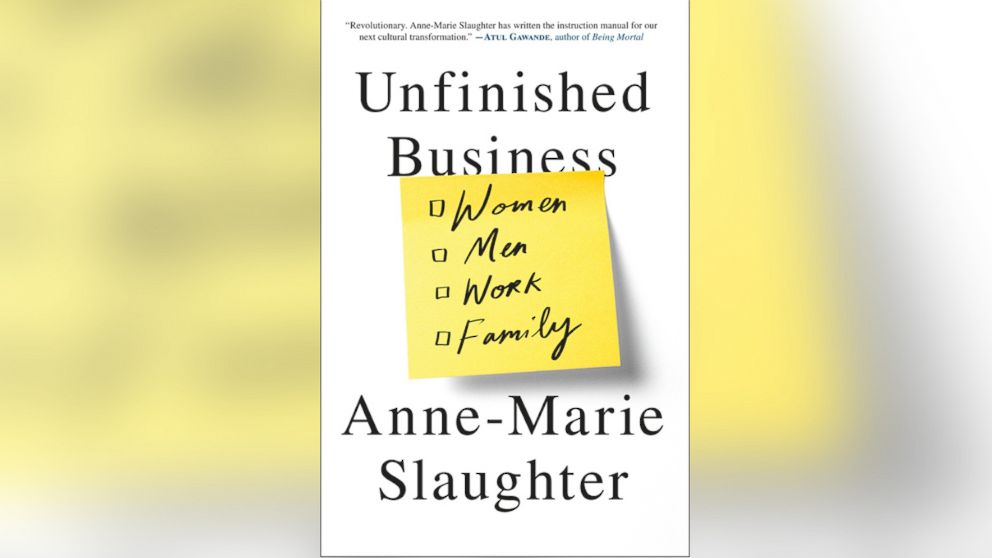Book Excerpt: Anne-Marie Slaughter's 'Unfinished Business'

— -- Excerpted from the book UNFINISHED BUSINESS by Anne-Marie Slaughter. Copyright © 2015 by Anne-Marie Slaughter. Reprinted by arrangement with Random House, a division of Penguin Random House LLC. All rights reserved.
End Flexibility Stigma in the Workplace
Real flexibility—the kind that gives you at least a measure of control over when and how you work in a week, a month, a year, and over the course of a career—is a critical part of the solution to the problem of how to fit work and care together. In most workplaces, however, flex policies exist largely on paper. It is often exceedingly difficult, if not impossible, for employees to avail themselves of them. Even when firms and their managers actually support flex policies, employees often don’t ask. And for good reason. In a work culture in which commitment to your career is supposed to mean you never think about or do anything else, asking for flexibility to fit your work and your life together is tantamount to declaring that you do not care as much about your job as your co-workers do. Dame Fiona Woolf, a British solicitor and former lord mayor of London, puts it succinctly: “Girls don’t ask for [flexible work] because they think it’s career suicide.”
This assessment resonated with one young woman who wrote to me after my article in The Atlantic came out. Kathryn Beaumont Murphy was already a mother when she became a junior associate—a rarity at big law firms. She had a generous maternity leave and took advantage of their flextime policy when she returned after having her second child. She was allowed to work “part-time” for six months after her maternity leave ended, though it was still forty hours a week. “At the end of that six-month period,” Murphy says, “I was told by the all-male leadership of my department that I could not continue on a flexible schedule as it would hurt my professional growth.” She ended up leaving the firm entirely for a less prestigious job that pays much less, but where she has more control over her schedule. Her children are now five and eight, and after her experience she now believes that “flexibility is as valuable as compensation.”
In 2013, the Journal of Social Issues published a special issue on “flexibility stigma” that included several studies showing that workers who take advantage of company policies specifically designed to let them adjust their schedules to accommodate caregiving responsibilities may still receive wage penalties, lower performance evaluations, and fewer promotions. If anything, men who try to take advantage of flexible policies have it even worse. Joan Blades and Nanette Fondas, co-authors of The Custom-Fit Workplace, give the example of a law firm associate named Carlos who tried to arrange for paternity leave and was told that his company’s parental leave policy was really meant just for women. But even if his firm had said yes, it’s likely that he then would have paid an even bigger price in terms of his chances for advancement and overall mistreatment than his female colleagues did.




